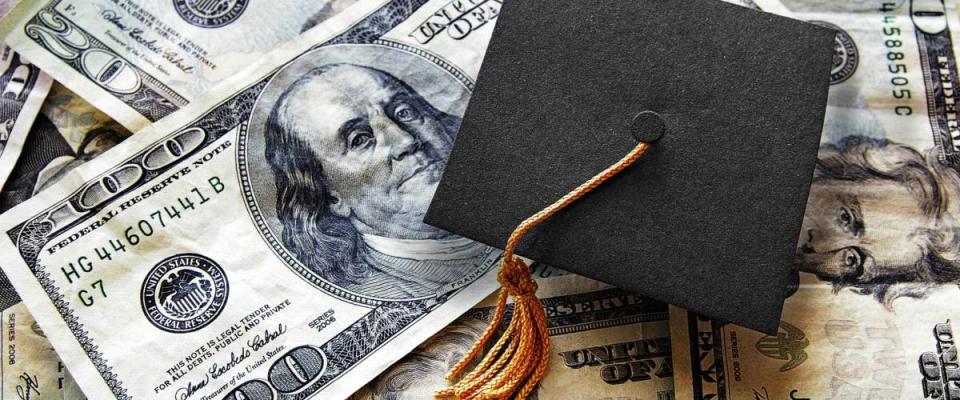9 strategies for getting more money than a stimulus check

After more than five months of talking and tussling, Congress and the White House have given up — at least for now — on getting a deal on new coronavirus relief, including more of those $1,200 stimulus checks.
Unemployment is still high, businesses keep dying off, and families continue to struggle, but there won't be another distribution of cash anytime soon to lift household budgets and stimulate the economy.
The negotiators may try again after the election.
Tired of waiting? We've found plenty of ways that you can put more money in your bank account right now. In fact, if you follow these tips you can give yourself way more than another $1,200 stimulus payment.
1. Curb your car insurance costs

If you're like most people, your car insurance comes due every six months. And, it's very easy to get complacent and just blindly keep paying your premiums — and won't even know if your insurance company is overcharging you.
Drivers can save an average $1,127 a year by shopping around regularly for the lowest auto insurance rates, a study by CarInsurance.com found. Each time your policy is up for renewal, compare rates from multiple insurers to make sure you're paying the best price.
Insurance carriers have been slashing their rates in 2020 because Americans have been driving less and filing fewer claims due to COVID-19. If your company hasn't cut you a break, it's definitely time to look for a new one.
And consider raising your auto insurance deductibles to score deeper savings. When you accept higher deductibles, you agree to cover more of your own losses before the insurance kicks in.
2. Collect your forgotten funds
You could have $500 or even $1,000 waiting for you from an old bank account or 401(k) that you've totally forgotten about. That's pretty common.
In fact, it's true for 1 in 10 Americans, according to the National Association of Unclaimed Property Administrators. The group says the states return $3 billion in unclaimed property to its rightful owners every year.
You can search what's in state databases of unclaimed funds by going to MissingMoney.com, where you'll see if you left any money in an old checking or savings account.
There may even be life insurance proceeds out there, from a relative who passed away and never told you about the policy. (Make a note to be more forthcoming with your beneficiaries when you buy your own life insurance.)
3. Trade in your mortgage for a cheaper one

If you're a homeowner with a mortgage, you might easily give yourself much more than a stimulus payment by refinancing to one of today's historically low mortgage rates.
Thirty-year fixed-rate mortgages are just a hair above an all-time low right now, averaging 2.81% in the nearly 50-year-old weekly survey from mortgage company Freddie Mac.
With rates so low, 19.3 million homeowners could save an average $299 a month by refinancing, according to estimates from Black Knight. That $3,588 per year.
The mortgage data firm says you're a good refi candidate if own at least 20% of your home, could cut your 30-year mortgage rate by three-quarters of 1 percentage point (0.75) or better, and have a credit score of 720 or higher.
4. Score savings on your home insurance
As with your car insurance, you can fall into the trap of paying too much for your homeowners insurance if you don't shop around. Prices can be all over the place.
For example, LendingTree's ValuePenguin site found annual home insurance rates in Florida can vary by more than $1,500 for coverage that's nearly identical.
In other words, some homeowners could save $1,500 by shopping around each year at renewal time.
A good way to comparion shop is by using a website that will let you size up quotes from hundreds of insurers for free, to see the best deals available in your area.
5. Be smarter with your student loan debt

Payments on federal student loans have been paused through the end of 2020, but if you’ve got debt from a private student loan you’re still on the hook for your regular monthly minimum.
But here's something you might not know: Interest rates on private student loans are at all-time lows — down to just 1% in some cases — and refinancing your loan can save you a bundle.
Refinancing lets you pay off your current debt with a new loan at a lower rate. Your monthly payment will go down, so it's possible you could save at least $1,200 per year.
Review loan offers from several lenders to make sure you’re getting the best rate possible.
6. Search for tax refunds you missed
Check with the IRS to see if you may be missing any tax refunds.
The tax agency says the average refund paid to taxpayers in both 2019 and 2020 has been $2,741 — far above that $1,200 coronavirus relief payment amount.
You can amend your previous tax returns for up to three years if you were eligible for a refund but neglected to claim it.
The tax agency recently put out a last call for taxpayers to claim more than $1.5 billion in refunds from 2016 returns filed in 2017.
7. Pay less for everything you buy online

If the pandemic now has you doing most of your shopping online, Amazon may be your go-to time after time. But Amazon doesn’t always have the best prices, and nobody has time to price-check every store.
So, just download a free browser extension that will automatically find you deals and coupon codes every time you shop online.
You also can set price-drop alerts for your favorite products, so if they go on sale you’ll be the first to know.
Taking a moment for the installation could save you hundreds of dollars each year, depending on how much online shopping you do.
8. Earn money through a side hustle
If you've got a hobby or some special skills or talents, you might be able to land some side work that could easily bring you $1,000 a year, maybe more.
Do you write? Know website or graphic design? Have a knack for doing celebrity impressions? You can use an online marketplace for gig work and find someone looking to pay for your unique services.
It’s sort of like online dating: You just create a profile describing what you can offer, and people will contact you if you've got what they're looking for.
Once you start completing gigs and racking up positive reviews for your work, you can bump up your price, rake in even more money — and maybe consider making your side hustle your full-time job.
9. Cut clutter from your life — and sell it

Is your attic full of old toys and other childhood memories you've been hanging onto for way too many years? Maybe it's time to cash in that stuff.
Your toys from the 1970s and '80s could be worth hundreds of dollars. If you've never sold things on eBay before, getting started is relatively simple.
Or, use a buyback service that will take your old electronics, books, and movies off your hands, and give you cash for them. We did a comparison test of the top services online and found Decluttr pays up to 33% more than competitors.
Just type in the specs of your item, or use the Decluttr app to scan the barcode, and you’ll get a quote. Then, put your stuff in a box, stick on the free shipping label, and drop it off at the nearest UPS store. Once Decluttr receives the package, you'll be paid via PayPal or direct deposit.

